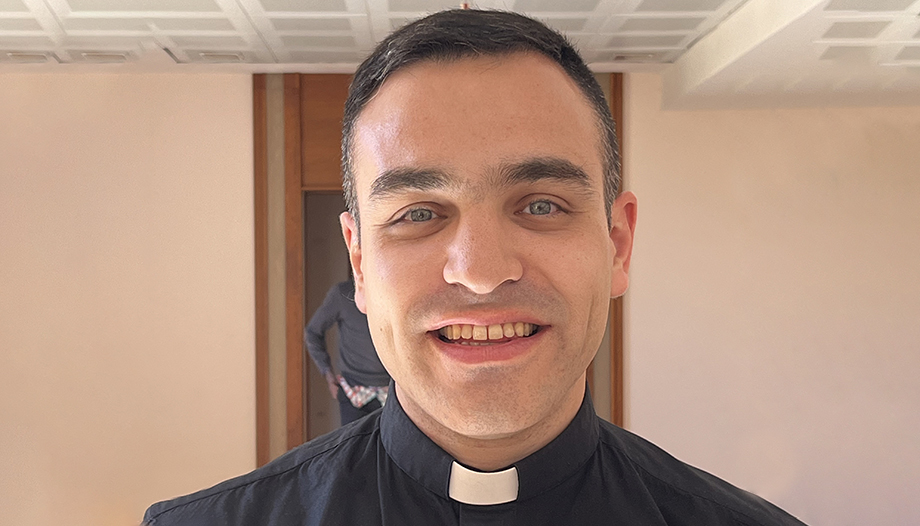The story of Mathias Soiza's vocation is, as he himself qualifies, "a bit sui generis". The son of divorced parents, he grew up in an environment indifferent to the faith until, at the age of 10, he decided he wanted to make his First Communion.
How does a young person come from a secularized environment into the life of the Church?
-I am an only child of divorced parents. My parents decided not to baptize me and let me, when I grew up, decide my religion. In addition, I attended public school, so I, in religious matters, was a tabula rasa. When I was in 5th grade, several of my classmates were about to make their first communion and, at recess, they would talk about it. I was interested and I asked them about it. I went to my mother's house and told her that I wanted to make communion. The following year I began catechesis in a parish in the neighborhood. On Easter night 2002 I was baptized, confirmed and made my First Communion. I was 12 years old.
How did you come to discern a priestly vocation?
-In the parish they insisted a lot on the importance of going to mass on Sundays. My mother would accompany me and I would fall asleep at mass! My mother would pay attention to the rites, to the readings, and so she came back to the faith. Today she is a devout Catholic: she gets up at 5:00 a.m. to pray and then goes to work. She has an exemplary faith and nourishes me a lot.
Shortly thereafter I began an incipient spiritual direction. When I was about 13 years old, the pastor asked me if I had asked the Lord what he wanted from me. I told him no. The priest explained to me that the core of every Christian life is to do God's will and that it is good to do it as soon as possible. I replied: "Very goodbut I didn't do it. Time passed and he came to the parish to do the pastoral experience to a seminarian. We became friends and he invited me to do some vocational retreats. I didn't want to go, but I was afraid to say no. I thought about going to the first one. I thought about going to the first one and if I didn't like it, I wouldn't go back. I was 16 years old at the time. I went and kept going..., and church life gained weight.
In August 2007, I went on a retreat and, one night, I saw my life pass in a second. I realized, with great emotion, that I was going to be happy with the bride of God, which is the Church.
In 2008 I entered the seminary and after 7 years of formation, I was ordained in 2015.
How did your environment react?
-My mother was very well, happy. I had a certain guilt complex that my parents, because of my decision, were going to be left without grandchildren. It was nice, because my mother started to go to the seminary to visit and accompany my companions who were from the interior of the country. This is something she still does today: she accompanies the priests, brings them something tasty, stays at Mass, etc.
My father, who is still somewhat skeptical, always told me that I had to find out what was mine and get on track. With that background he could not oppose. In his own way, he is happy.
What do you think are the challenges facing the Church in Uruguay?
-The most important external challenge is indifference. We don't have as combative a culture against the Church as I've seen in other places.
The Church in Uruguay It has always been poor, it has not had big cases of abuse, besides, during the time of military dictatorship, the Church was one of the few places where people could continue to meet... It is more a question of indifference than of frontal attack. People are not interested in talking about God.
We also have the problem of religious syncretism, which is growing, especially in the poorest neighborhoods. It is a rather delicate spiritual sociological phenomenon.
And internally, in addition to the fact that there is much to do and few resources, what I see is the need for spiritual renewal.
The communities that "turn society around" are those that have a strong Eucharistic life, a strong Marian piety and, at the same time, have a strong reality of service to others, which are supported by the neighborhood missionVisiting homes, schools.
It is not a matter of creating super pastoral strategies, but of promoting a community prayer environment that really makes the parish a heart.








